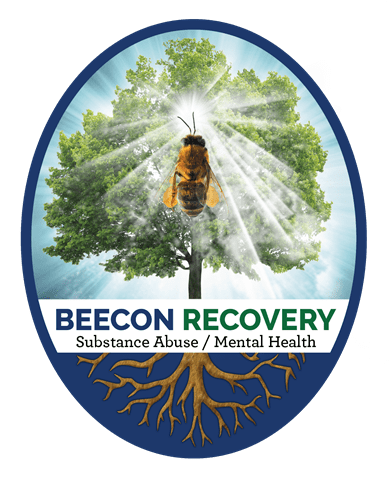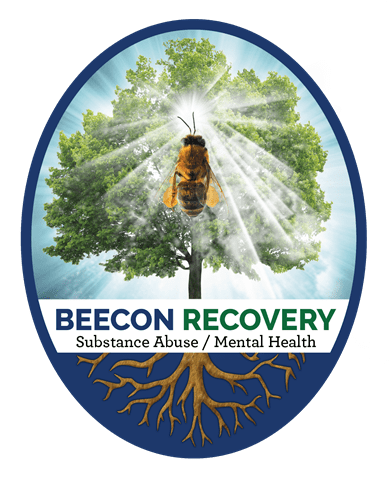Early addiction recovery presents individuals with a myriad of challenges, ranging from physical cravings to emotional turmoil and psychological triggers. Navigating this phase requires a delicate balance of resilience and support, as individuals often grapple with redefining their identities and coping mechanisms. Stress and anxiety, commonly heightened during this period of transition, can significantly impede progress if left unaddressed. These emotional hurdles not only exacerbate the risk of relapse but also hinder the individual’s ability to establish healthy coping mechanisms and maintain sobriety.
Acknowledging and actively addressing stress and anxiety are paramount for fostering sustainable recovery, as they lay the groundwork for building resilience, enhancing emotional well-being, and cultivating a foundation for long-term success in overcoming addiction.

Understanding Stress and Anxiety
Stress is the body’s natural response to perceived threats or challenges, triggering a physiological and psychological reaction. It often arises in situations where demands exceed an individual’s perceived ability to cope, leading to feelings of tension, pressure, or overwhelm.
Anxiety, on the other hand, involves excessive worry or fear about future events or situations. It is a persistent and often irrational feeling of unease that can interfere with daily life and functioning. Anxiety can manifest in physical symptoms such as rapid heartbeat, trembling, or sweating, as well as psychological symptoms like racing thoughts or difficulty concentrating.
Common Triggers for Stress and Anxiety in Early Recovery
In early recovery from addiction, individuals often encounter a variety of triggers that can intensify feelings of stress and anxiety. Some of the most common triggers include the following:
Withdrawal Symptoms: The physical and emotional discomfort experienced during withdrawal from substances can be a significant source of stress and anxiety. Symptoms such as cravings, nausea, insomnia, and mood swings can be overwhelming and challenging to cope with.
Uncertainty About the Future: Exiting the familiar routine of addiction can lead to feelings of uncertainty and fear about what lies ahead. Individuals may worry about their ability to stay sober, find employment, rebuild relationships, or create a fulfilling life without substances.
Social Pressures: Reintegrating into social circles where substance use was prevalent can be stressful, as individuals may face pressure to engage in old behaviors or feel isolated due to changing relationships. Additionally, navigating social situations without the buffer of drugs or alcohol can be anxiety-inducing.
Financial Difficulties: Addiction often takes a toll on financial stability, and early recovery may bring financial challenges such as debt, unemployment, or legal issues. The stress of managing financial responsibilities and rebuilding financial health can contribute to feelings of anxiety.
Emotional Turmoil: Early recovery is a time of heightened emotional sensitivity as individuals confront suppressed feelings, past traumas, and unresolved conflicts. Processing these emotions without the numbing effects of substances can be overwhelming and trigger anxiety.
Fear of Relapse: The fear of returning to addictive behaviors and undoing progress made in recovery is a common source of anxiety. Individuals may worry about encountering triggers or facing difficult situations that could lead to relapse, leading to constant vigilance and heightened stress levels.
Loneliness and Isolation: Transitioning away from a social network centered around substance use can leave individuals feeling lonely and isolated. Lack of support and connection can exacerbate feelings of stress and anxiety, making it challenging to cope with the demands of early recovery.
Overall, navigating these common triggers requires individuals to develop healthy coping mechanisms, seek support from peers and professionals, and prioritize self-care to manage stress and anxiety effectively during early recovery.

Coping Skills for Anxiety and Stress in Early Recovery
Here are some coping skills for individuals in addiction recovery who are dealing with anxiety and stress:
- Deep Breathing: Practice deep breathing exercises to calm the body and mind. Focus on inhaling deeply through the noise, holding the breath for a few seconds, and then exhaling slowly through the mouth.
- Mindfulness Meditation: Engage in mindfulness meditation to cultivate present-moment awareness and reduce stress. Focus on observing thoughts and sensations without judgment.
- Physical Exercise: Incorporate regular physical exercise into your routine to reduce stress and anxiety. Activities such as walking, jogging, yoga, or swimming can help release endorphins and improve mood.
- Healthy Lifestyle Habits: Maintain a balanced diet, stay hydrated, and prioritize adequate sleep to support overall well-being and resilience in recovery.
- Grounding Techniques: Use grounding techniques such as focusing on the five senses or repeating a calming mantra to bring attention back to the present moment and reduce anxiety.
- Creative Expression: Engage in creative activities such as painting, writing, or playing music as a way to express emotions and alleviate stress.
- Establish a Routine: Create a daily routine that includes structured activities, self-care practices, and relaxation techniques to provide stability and reduce anxiety.
- Social Support: Reach out to trusted friends, family members, or support groups for encouragement, validation, and practical assistance in coping with stress and anxiety.
- Cognitive-Behavioral Techniques: Practice cognitive-behavioral techniques such as challenging negative thoughts, reframing situations, and problem-solving to reduce anxiety and build resilience.
- Seek Professional Help: If stress and anxiety become overwhelming or interfere with daily functioning, seek support from a therapist or counselor who specializes in addiction recovery and mental health.
Find Support at Beecon Recovery
Beecon Recovery offers comprehensive support for individuals navigating addiction recovery, providing therapy programs, ketamine treatments, and additional services. We recognize the challenges that come with addiction recovery, which is why we are committed to offering tailored assistance and resources. Reach out to us if you are in need of additional support and guidance on your recovery journey.

